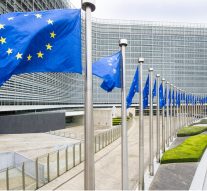
Migrants and the multifaced sustainable economy
Migration 26 July 2021As the EU is faced with vast number of challenges of not only political origin, migrants remain in its focus. This time, we observe the migration from the perspective of the Green Deal. This analysis will, thus, focus on the official communiqué issued by the EU Commission, the EU Council and the EU Parliament.
The EU recognises that the global climate and environmental challenges are a significant threat multiplier and a source of instability. The ecological transition will reshape geopolitics, including global economic, trade and security interests. This will create challenges for a number of states and societies. The EU will work with all partners to increase climate and environmental resilience to prevent these challenges from becoming sources of conflict, food insecurity, population displacement and forced migration, and support a just transition globally. Climate policy implications should become an integral part of the EU’s thinking and action on external issues, including in the context of the Common Security and Defence Policy.
Trade policy can support the EU’s ecological transition. It serves as a platform to engage with trading partners on climate and environmental action. Commitments to sustainability have been continuously strengthened in EU trade agreements, in particular with regard to enhancing climate change action. The Commission has also been stepping up efforts to implement and enforce the sustainable development commitments of EU trade agreements, and these efforts will be further enhanced with the appointment of a Chief Trade Enforcement Officer. On climate change more specifically, the EU’s most recent agreements all include a binding commitment of the Parties to ratify and effectively implement the Paris Agreement.
The Commission will propose to make the respect of the Paris agreement an essential element for all future comprehensive trade agreements. The EU’s trade policy facilitates trade and investment in green goods and services and promotes climate-friendly public procurement. Trade policy also needs to ensure undistorted, fair trade and investment in raw materials that the EU economy needs for the green transition. It can help address harmful practices such as illegal logging, enhance regulatory cooperation promote EU standards and remove non-tariff barriers in the renewable energy sector. All chemicals, materials, food and other products that are placed on the European market must fully comply with relevant EU regulations and standards. The EU should use its expertise in “green” regulation to encourage partners to design similar rules that are as ambitious as the EU’s rules, thus facilitating trade and enhancing environment protection and climate mitigation in these countries.
The study issued by the European Council on Foreign Relations, claims that no EU government can claim that climate change has taken it by surprise. In recent decades, the impact of increasing global temperatures on agricultural output, weather-related natural disasters, and migration and conflict patterns has been increasingly visible across the world, including in the EU. However, some governments have been responding more quickly than others. The chart below plots the share of renewable energy in each state’s energy mix in 2019 against the change in this share between 2009 and 2019. Sweden, Finland, and Denmark – which are also climate frontrunners according to ECFR’s latest EU Coalition Explorer – have been putting in the groundwork to expand renewable sources of electricity generation quite rapidly in the last decade. Meanwhile, member states such as Latvia and Austria have been moving more slowly, albeit after starting from a relatively high base. Estonia, Portugal, Lithuania, and Italy are working hard to catch up. The group in the bottom left-hand corner – including the Netherlands, Luxembourg, and Poland – still has some way to go and, so far, has felt much less compelled to make progress than others. Interestingly, large EU member states France, Germany, and Spain have not been doing much better.
The book which Albert Kraler, Caitlin Katsiaficas, and Martin Wagner authored, advises several recommendations such as the gathering of evidence on the effects of climate change and environmental change more generally on migration and displacement. It should do this in cooperation with third countries and regions that are facing mobility issues in the context of climate change and environmental degradation. To improve the evidence base, data collection on disaster-related cross-border displacement based on the methodology of the IDMC data collection on internal displacement should be promoted. The EU institutions should request a future-oriented EU asylum and migration policy which shall, finally, take more imperative actions on environmental migration and displacement alongside other emerging challenges. Lastly, the European Parliament should therefore use this window of opportunity to take a clear position towards the European Commission on the importance to arrive at EU level at a common position on how to address future migration challenges in the context of climate change and natural disasters in its various facets.



